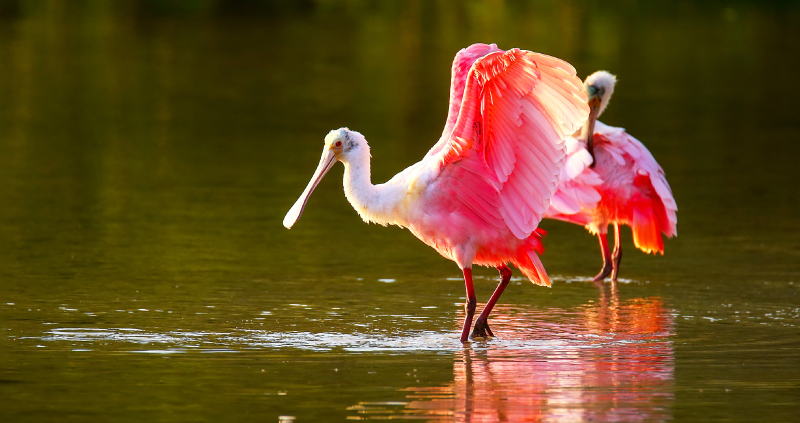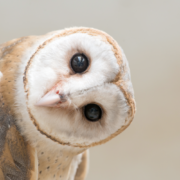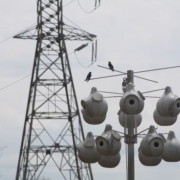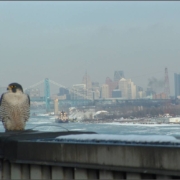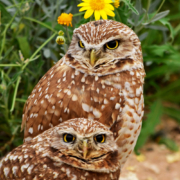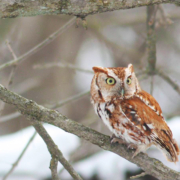Flamingos? Nope – They’re Roseate Spoonbills!
With their long legs and rosy pink color, it’s easy to understand why roseate spoonbills (Platalea ajaja), a waterbird species that lives in coastal areas of the southeast U.S. and Caribbean, are often mistaken for flamingos.
On their website, Audubon describes them as “gorgeous at a distance and bizarre up close.” But let’s be honest, in the world of weird-looking birds, roseate spoonbills are in good company. (I mean, have you ever seen a shoebill stork?)
Like flamingos, spoonbills’ coloration comes from carotenoid pigments in their diet, which consists primarily of aquatic invertebrates and small fish. Their feathers can range in color from bright magenta to pale pink, depending on age and location.
Their spoon-shaped bill is unmistakable, however. Although the long, flat, spoon-shaped bill may seem downright strange and even impractical, it actually serves an important purpose. The bill shape helps the birds to detect, trap, and strain fish and invertebrates out of the shallow, muddy water where they forage.
Like other colonial waterbirds, roseate spoonbills can usually be found in small flocks among other wading birds like egrets, nesting and foraging in the same area.
If you are lucky enough to have roseate spoonbills living on your site, you’ve got a great opportunity to help this species, which is declining in some areas (like the Everglades) and is stable but low in numbers throughout the rest of its range. Here’s a few great ways your team can enhance habitat for these birds:
- Plant native wetland vegetation, which will benefit spoonbills’ food by providing food and cover and by improving water quality
- Install structures such as submerged brush piles and rock piles, which will benefit spoonbills’ food
- Conduct regular surveys of the spoonbills’ colony to track changes in the population over time
- Plant more of the shrubs and trees (e.g., mangroves) that spoonbills and other colonial waterbirds in your area use for nesting
- Take measures to decrease disturbance to nesting spoonbills, such as by posting signage or educating employees about the importance of keeping your distance from nesting colonies.
If you need help tailoring these projects to your particular site, or just aren’t sure how to begin, we’re here to help! Give our Conservation Strategy and Planning Department a call at 301-588-8994 or send us an email at strategyandplanning@wildlifehc.org.
